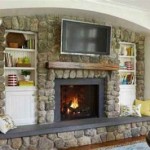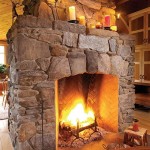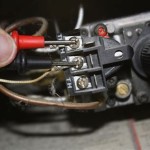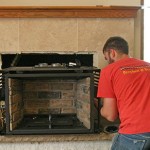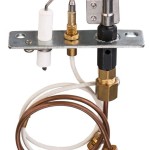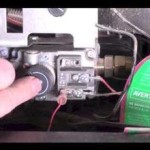Vent-Free Gas Fireplaces: Convenience and Considerations
Vent-free gas fireplaces offer a convenient and efficient way to heat a space and create a cozy ambiance. They operate without the need for a traditional chimney, eliminating the associated installation costs and space requirements. However, it is crucial to understand the potential drawbacks and safety considerations before deciding if a vent-free gas fireplace is suitable for your home.
Energy Efficiency and Heat Output
Vent-free gas fireplaces are known for their efficiency. Since they don't vent combustion gases outside, the majority of the heat generated remains within the room. This translates to a higher heating efficiency compared to traditional fireplaces. The heat output of a vent-free gas fireplace can vary depending on the model and BTU rating. BTU stands for British thermal units, a measure of energy. A higher BTU rating indicates a greater heat output, making it suitable for larger spaces. Before purchasing a vent-free gas fireplace, it is essential to estimate the heating requirements of the room and select a model with the appropriate BTU output.
Safety Considerations
Vent-free gas fireplaces are designed to be safe, but they do require careful consideration. Since combustion gases aren't vented outside, they are released directly into the room. To mitigate these risks, vent-free gas fireplaces have oxygen depletion sensors and safety shut-off mechanisms. These sensors monitor oxygen levels within the room, and if the oxygen level falls below a safe threshold, the fireplace will automatically shut off, preventing potential carbon monoxide poisoning. However, it is crucial to ensure that the fireplace is installed and operated according to the manufacturer's instructions. This includes ensuring adequate ventilation in the room, preventing obstructions near the fireplace, and regularly inspecting and maintaining the appliance to ensure safety.
Installation and Maintenance
Installing a vent-free gas fireplace is generally simpler than installing a traditional fireplace with a chimney. However, it is still recommended to hire a qualified and licensed installer to ensure proper installation. Vent-free gas fireplaces require regular maintenance and inspection to ensure optimal performance and safety. This includes checking the burner, igniter, and other components. It is also essential to have the fireplace inspected annually by a qualified technician. Failure to maintain a vent-free gas fireplace can lead to decreased efficiency, malfunction, and potential safety hazards.
Environmental Impact
Vent-free gas fireplaces release combustion products, including carbon dioxide, into the room. While these appliances are generally more energy-efficient than traditional fireplaces, they still contribute to greenhouse gas emissions. Moreover, the byproducts of combustion can accumulate indoors, potentially impacting air quality. This is especially important to consider for individuals with respiratory conditions or those sensitive to air pollution.
:max_bytes(150000):strip_icc()/ventless-gas-fireplaces-4160746-hero-f9d4bdcd9bd446eb84406de306f790ba.jpg?strip=all)
How To Pick Out A Ventless Gas Fireplace

One6 Vf SÓlas Contemporary Fireplaces

Ventless Gas Fireplace Vent Free Modern

Superior Fireplaces 42 Vent Free Firebox Fine S Gas

What Is A Vent Free Fireplace

Artisan 60 Inch Vent Free Linear Fireplace Fine S Gas

Empire Vail Premium 32 Slope Glaze Burner Vent Free Gas Fireplace Vf

Are Vent Free Gas Fireplaces Safe Ventless

Vent Free Gas Fireplaces Inserts Stoves Napolis Godby Hearth And Home

Vermont Castings Vent Free Stoves Main Street Fireplace Fall
Related Posts

